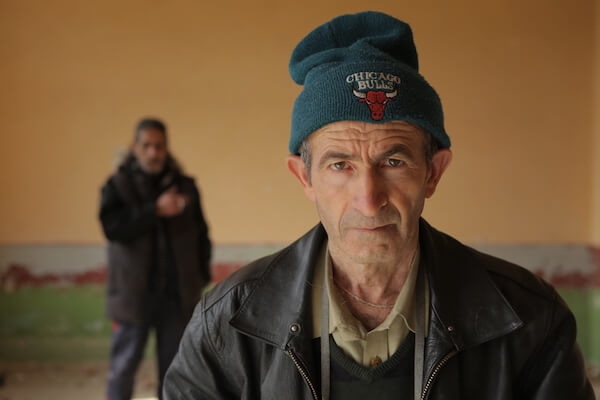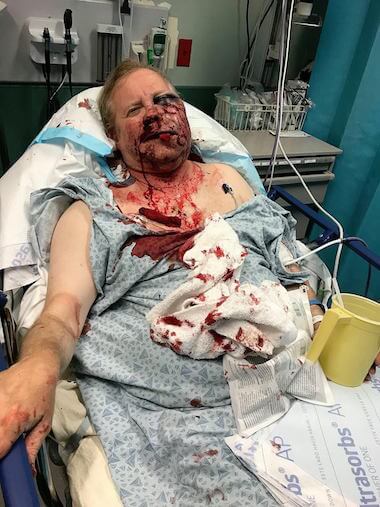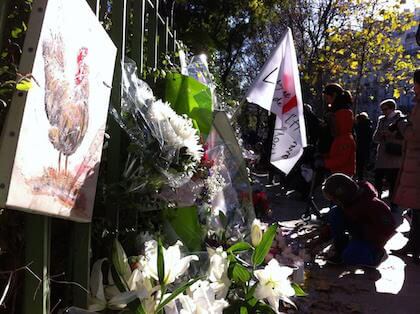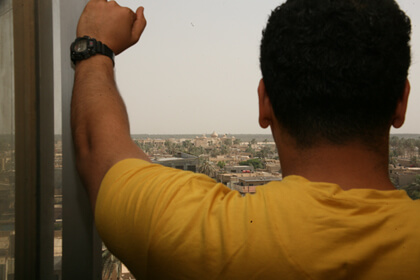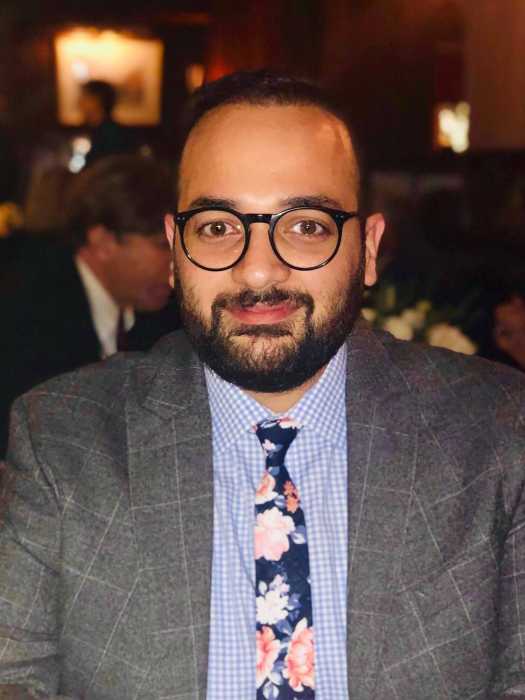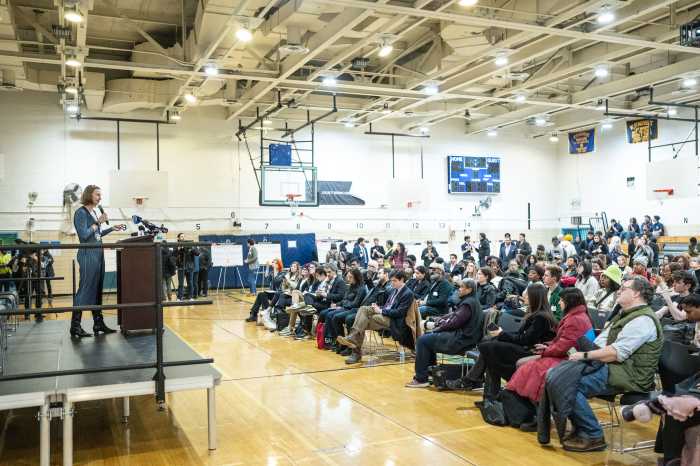Victor and Fernando in Cristina Herrera Borquez’s “No Dress Code Required.” | HUMAN RIGHTS WATCH FILM FESTIVAL
The name of the Human Rights Watch Film Festival is a little deceptive. It’s not exactly a festival of films about human rights, although it comes close. Instead, it’s sponsored by the NGO Human Rights Watch, which is akin to Amnesty International though with a broader mission, and it would be more accurately described as a political film festival.
This year’s installment — the 28th annual here in New York, along with series other times of the year in a dozen other cities worldwide — takes a trilogy of films about indigenous Guatemalan people by Pamela Yates as its centerpiece, but it presents 21 documentaries, almost all with Q&A sessions with filmmakers, subjects, or activists. While Human Rights Watch has been criticized as an organization for going easy on governments associated with the US, the same can’t be said of its programming this year on American subjects like racist policing and the death penalty. Some of the more intriguing-sounding films expand the concept of human rights beyond overt politics: Maite Alberdi’s “The Grown-Ups” focuses on a group of aging Spaniards with Down syndrome. Still, leftism is implicit in the festival’s choices; for example, you won’t find any films here arguing that the right to bear arms is a fundamental one.
Gay marriage, ISIS terror, Europe’s response to refugees at Human Rights Watch festival
Mexican director Cristina Herrera Borquez’s “No Dress Code Required” (Jun. 13, 6:45 p.m., IFC Center; Jun. 16, 9 p.m., Lincoln Center) chronicles the efforts of two gay men, Victor and Fernando, to get married in Mexicali, a city that permits same-sex marriage only under complex legal circumstances. Her film is likely to remind North American spectators of the hoops US gays and lesbians had to jump through in some states to get their rights recognized before marriage became recognized at the federal level here.
There’s more drama in “No Dress Code Required” than in most narrative films, as the government keeps finding new ways to keep Victor and Fernando from earning their civil rights, from finding faults with their birth certificates to declaring that they must be suffering from dementia. Depressingly, local politicians are shown reeling off a string of anti-gay statements, and while the civil servants don’t engage in overt comments like “being gay is unnatural,” such attitudes are obviously at the core of their hostility to Victor and Fernando.
A love story at heart, “No Dress Code Required” shows the power of persistence and activism as well as having a famous friend who can appear in a video on behalf of your protest.
A father cries as sits among body bags in Zaradasht Ahmed’s “Nowhere to Hide.” | HUMAN RIGHTS WATCH FILM FESTIVAL
Short on political analysis but long on immersion in an ISIS-ravaged Iraq, Zaradasht Ahmed’s “Nowhere to Hide” (Jun. 9, 6:30 p.m., Lincoln Center) has a simple concept. Ahmed gave a small video camera to Nori Sharif, a medic working in a hospital in Diyala province. At first, Nori began documenting people damaged by the war when the Americans officially pulled out of Iraq in 2011, as well as the daily bombings in his neighborhood and their aftermath. Compared to most of his neighbors, his job and ownership of the camera give him a relatively privileged position, but that could change at any minute. Many of the disabled and paralyzed people whom he films used to lead middle-class lives, too.
The sense of Iraq as one big rubble heap may be familiar from the American media; Nori’s ability to depict it from the inside is something new. Then ISIS approaches, as do various militias fighting them, and his privileged status quickly becomes imperiled. The Sharif family is forced to become internally displaced refugees. I would’ve liked to learn more about Ahmed’s relationship to his subject — he’s a Kurd apparently based in Scandinavia now — and his larger political perspective, but the footage shot by Nori and the downward spiral of his fortunes pack such a punch that these qualms ultimately don’t matter much.
Ivan the postman in Tonislav Hristov’s “The Good Postman.” | HUMAN RIGHTS WATCH FILM FESTIVAL
Bulgarian director Tonislav Hristov’s “The Good Postman” (Jun. 11, 8:45 p.m.; IFC Center; Jun. 14, 6:30 p.m., Lincoln Center) finds a microcosm of European debates over refugees and immigration in an unlikely place. It’s set in Great Dervent, a village where no resident appears to be under 50. (The youngest person in the film is a mayoral candidate who is nostalgic for communism and looks like a middle-aged heavy metal rocker.) Another of the candidates for mayor is Ivan, the town’s beloved postman, who suddenly gets the idea to embrace the Syrian refugees who pass through Great Dervent, which rests on the Turkish border, and invite them to live there rather than chasing them away. The town’s population, he points out, isn’t expanding on its own. While some of his neighbors agree with him, his mayoral opponents trot out the usual arguments against letting refugees stay (this being Europe, they add an extra touch of contempt for Roma, the people better known by the pejorative “gypsies”). In the end, apathy wins the day and Ivan himself may give up his idealism in favor of exploiting the refugees.
Of the films I was able to preview, this was the most formally impressive, framing the village in long shots containing both natural beauty and decrepit buildings.
HUMAN RIGHTS WATCH FILM FESTIVAL | Jun. 9-18 | Film Society of Lincoln Center, 144-165 W. 65th St. | IFC Center, 323 Sixth Ave. at W. Third St. | Information, tickets at ff.hrw.org

